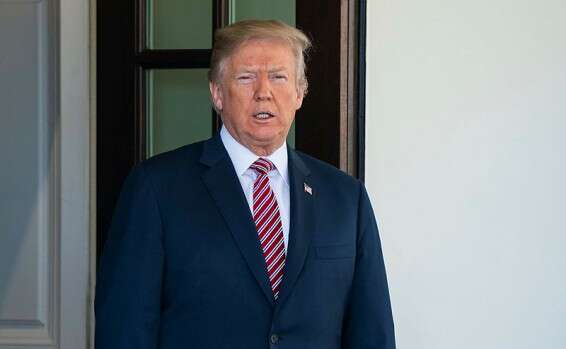On Monday, hours after Prime Minister Benjamin Netanyahu revealed Iran's clandestine efforts to safeguard and obscure its nuclear capabilities, the White House voiced its support for the Israeli leader.
"The United States is aware of the information just released by Israel and continues to examine it carefully," the White House said in a statement. "This information provides new and compelling details about Iran's efforts to develop missile-deliverable nuclear weapons."
"These facts are consistent with what the United States has long known: Iran had a robust, clandestine nuclear weapons program that it has tried and failed to hide from the world and from its own people. The Iranian regime has shown it will use destructive weapons against its neighbors and others. Iran must never have nuclear weapons," the statement said.
Netanyahu's dramatic presentation Monday, in which he unveiled "half a ton" of declassified materials seized from Iran, aimed to demonstrate that Iran was keen on preserving its nuclear expertise and know-how despite a nuclear agreement with world powers.
In 2015, Iran agreed to curb its nuclear program in a deal with six world powers, led by the U.S. In exchange, crippling economic sanctions were lifted. U.S. President Donald Trump, a vocal opponent of the deal, has vowed to withdraw from the deal unless its "terrible flaws" are fixed before a May 12 deadline.
During his presentation, Netanyahu said that he hoped Trump would make the right decision by pulling out of the deal, noting that the documents unearthed by the Israeli agencies clearly show that Iran wants to maintain its nuclear capabilities in apparent defiance of the pledge it took under the terms of the deal.
Shortly after Netanyahu concluded his presentation, Trump was asked at a joint press conference with Nigerian President Muhammadu Buhari whether pulling out of the Iran nuclear deal would undermine U.S credibility and send the wrong message as he engages North Korea on its own nuclear program.
"No," Trump exclaimed. "I think it sends the right message. In seven years that deal [with Iran] will have expired and Iran is free to go ahead and create nuclear weapons. That is unacceptable. Seven years is tomorrow. They are not sitting back idly, they are setting off missiles which they say is for TV purposes, but I don't think so."
Trump said he has not ruled out remaining in the deal, as long as its flaws are fixed. "We'll see what happens," he said. "We will make a decision. That doesn't mean we won't negotiate a real agreement; this agreement was not approved by too many people. It is a horrible deal for the U.S., including the fact that we gave Iran $150 billion and $1.8 billion in cash. Nigeria would like some of that."
"If anything, what happened today [in Israel] has really shown that I have been 100% right," he concluded.
Netanyahu's surprise briefing on Iran was covered live by news networks around the world, including CNN and Fox News.
Olli Heinonen, the former chief inspector of the International Atomic Energy Agency, told the Guardian that the information was not new and that the watchdog was briefed on the controversial Iranian project to obtain nuclear capabilities, called Amad, more than a decade ago.
"Some of the images that we saw I briefed to the board in a closed session in February 2008," Heinonen said.




